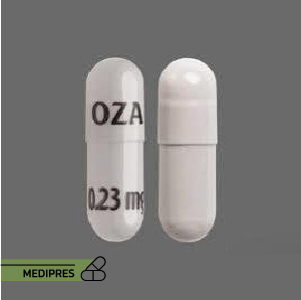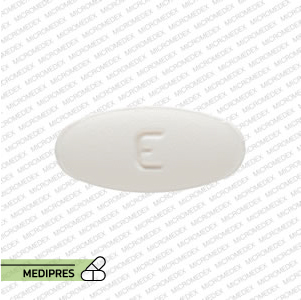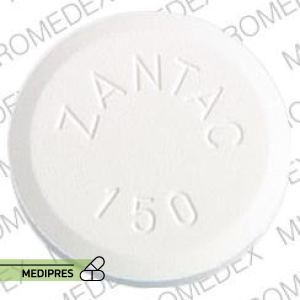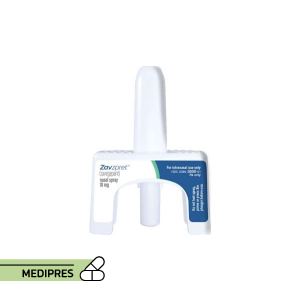
Zegalogue
23 June, 2023
Ziprasidone
23 June, 2023Zeposia
Generic name: Ozanimod
Drug class: Selective immunosuppressants
Dosage forms: capsule
Root of administration: Oral
Dose: 0.23, 0.46, 0.92 mg
Mechanism of action: Zeposia is thought to work by preventing immune cells (lymphocytes) from entering the intestines and central nervous system (CNS). It does this by trapping the immune cells in the lymph nodes, which may stop them from causing harmful inflammation in the CNS (in the case of multiple sclerosis) and the colon (in the case of ulcerative colitis). By reducing inflammation that would have been caused by the lymphocytes, the symptoms of these conditions may improve.
Drug usage cases: Zeposia (ozanimod) capsules are used to treat adults with types relapsing forms of multiple sclerosis (MS) and moderately to severely active ulcerative colitis (UC). Zeposia helps to reduce the relapse rate and the number and size of brain lesions in multiple sclerosis. For ulcerative colitis, Zeposia is used to reduce symptoms, and it can also help achieve and maintain remission. Zeposia is FDA-approved to treat adults with moderately to severely active ulcerative colitis and also FDA-approved to treat relapsing forms of multiple sclerosis, including clinically isolated syndrome, relapsing-remitting disease, and active secondary progressive disease.
Drug contra indications: You should not use Zeposia if you are allergic to the active ingredient ozanimod or any of the inactive ingredients. To check for a complete list of ingredients, click here: Zeposia ingredients. You should not use Zeposia if you have certain serious heart conditions, especially:
recent (within the past 6 months) heart failure, heart attack, stroke, “mini-stroke” or TIA, chest pain (unstable angina), or other serious heart problem; “AV block” or sick sinus syndrome (unless you have a pacemaker); or severe untreated sleep apnea (breathing stops during sleep). Some heart rhythm medications can cause unwanted or dangerous effects when used with this medicine. Your doctor may change your treatment plan if you also use amiodarone, disopyramide, dofetilide, dronedarone, ibutilide, procainamide, quinidine, or sotalol. Do not use this medicine if you have used an MAO inhibitor in the past 14 days, such as isocarboxazid, linezolid, methylene blue injection, phenelzine, or tranylcypromine. Wait at least 14 days after stopping an MAO inhibitor before you take Zeposia. You should not receive live vaccines during treatment with Zeposia, for at least 1 month before starting treatment, and for 3 months after you stop treatment. Vaccines may not work as well when given during treatment with Zeposia. Tell your doctor if you have received any vaccine within the past 30 days or if you are scheduled to receive a vaccine. Tell your doctor if you have a fever or infection, or if you have ever had:
a weak immune system (caused by disease or by using certain medicine); a very slow heart rate; heart rhythm problems, long QT syndrome; a heart attack, stroke, or chest pain; high blood pressure; sleep apnea or other breathing problems; diabetes; liver disease; or an eye condition called uveitis. Before taking this medicine, you should have a complete blood count, a cardiac evaluation, liver function tests, and an ophthalmic assessment. Your doctor will check your current or prior medication, your vaccination history, and whether you have a confirmed history of chickenpox.
Side effects: Get emergency medical help if you have signs of an allergic reaction to Zeposia: hives, rash; difficult breathing; swelling of your face, lips, tongue, or throat. Call your doctor at once if you have:
slow heartbeats, chest pain, shortness of breath, or feel like your heart is skipping beats; a light-headed feeling, like you might pass out; cough, new or worsening shortness of breath; sudden confusion, severe headache, vision loss, or a seizure; pounding in your neck or ears; liver problems – nausea, vomiting, upper stomach pain, loss of appetite, dark urine, jaundice (yellowing of the skin or eyes); changes in vision – blurred vision, increased sensitivity to light, seeing an unusual color in your vision, or having a blind spot or shadows in the center of your vision; or symptoms of infection – fever, flu symptoms, feeling very tired, cough, rash, painful and frequent urination, neck stiffness, increased sensitivity to light.
Warnings: Infections: You may get infections more easily, even serious or fatal infections. Call your doctor if you have a fever, flu symptoms, feeling very tired, cough, rash, painful and frequent urination, neck stiffness, increased sensitivity to light. Your risk of infection could last for 3 months after you stop taking this medicine. Heart rate: This medicine can slow your heart rate when you start taking it. Tell your doctor if you have slow heartbeats, chest pain, shortness of breath, or feeling like your heart is skipping beats. Progressive multifocal leukoencephalopathy (PML): Zeposia can increase your risk for PML, which is a rare brain infection that usually leads to death or severe disability. PML is more likely to happen in people with weakened immune systems but has happened in people who do not have weakened immune systems. Symptoms of PML get worse over days to weeks. Call your doctor right away if you have any new or worsening symptoms of PML that have lasted several days, including weakness on one side of your body, loss of coordination in your arms or legs, decreased strength, problems with balance, changes in your vision, changes in your thinking or memory, confusion or changes in your personality.
Use during pregnancy or breastfeeding: Zeposia may harm an unborn baby. Tell your doctor if you are planning a pregnancy or are pregnant. Use effective birth control while using this medicine and for at least 3 months after your last dose. If you become pregnant while taking Zeposia pregnant, talk to your healthcare provider about registering with the Pregnancy Registry. The purpose of this registry is to collect information about your health and your baby’s health. It is not known if Zeposia passes into your breast milk. Talk to your healthcare provider about the best way to feed your baby if you taking this medicine.



